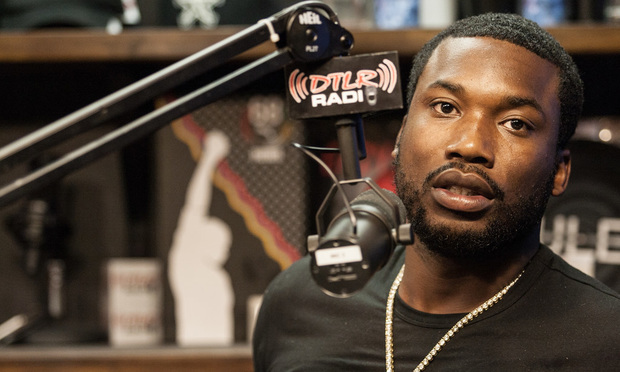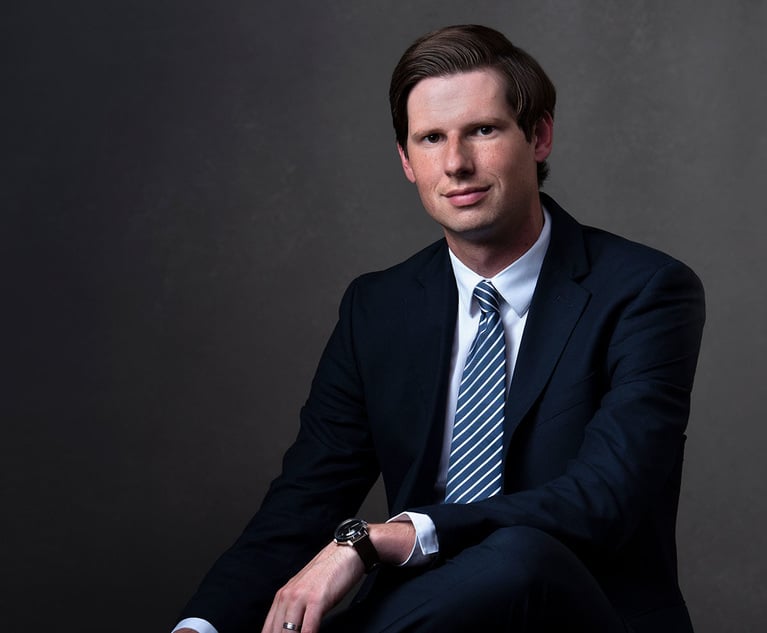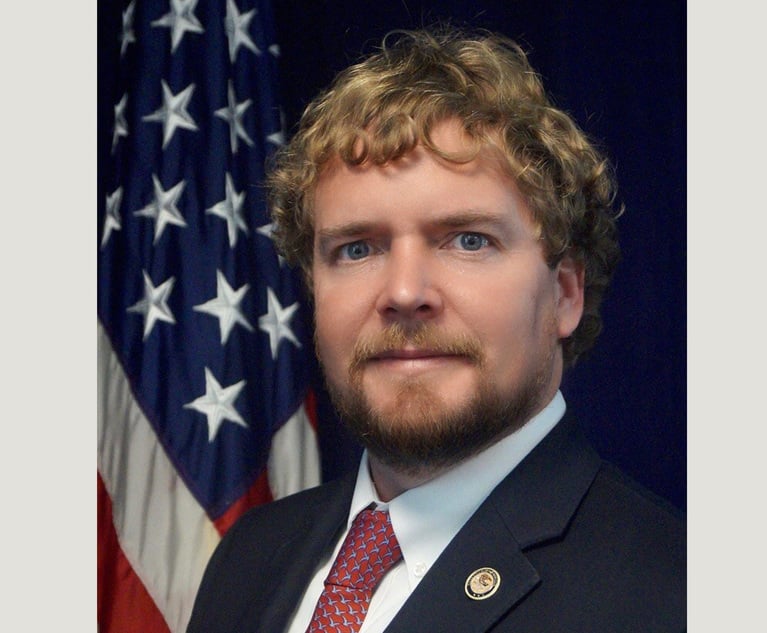With Pa. Appeals Court Win, Rapper Meek Mill Secures New Trial Before New Judge
The Superior Court's unanimous three-judge panel overruled a Philadelphia judge's decision last year that denied Meek Mill's request for a new trial.
July 24, 2019 at 12:00 PM
4 minute read
 Meek Mill. Photo: Shutterstock
Meek Mill. Photo: Shutterstock
Embattled rap artist Meek Mill has been given another shot at justice.
The Pennsylvania Superior Court on Wednesday granted Mill, whose real name is Robert Rihmeek Williams, a new trial in a controversial case that resulted in more than a decade of probation for the hip-hop star, and stirred a national conversation about the criminal justice system.
A unanimous three-judge panel of the Superior Court overruled Philadelphia Judge Genece Brinkley's decision last year that denied Williams' bid for a new trial. The decision also said Brinkley, who oversaw Williams' 2008 trial and clashed repeatedly with the rapper and his legal team, should not preside over any further proceedings.
“Williams' right to be tried before an impartial judge is necessary in this case because the trial judge heard highly prejudicial testimony at the first trial, which was a bench trial, and made credibility determinations in favor of a now discredited witness and against Williams,” Superior Court President Judge Jack Panella, who wrote the court's 18-page decision, said.
Williams' legal battle has been in the national spotlight since November 2017, when Brinkley sentenced the rapper to two-to-four years in prison for a probation violation, even though neither prosecutors nor Williams' probation officer sought jail time.
While a closely watched battle unfolded over the probation sentence—both in the media and in the courthouse—new evidence came to light that cast doubts about the credibility of a key witness at Williams' trial. The rapper has since fought to overturn the 2008 conviction on drug- and gun-related charges that resulted in the underlying probation sentence.
The Superior Court's ruling was issued just more than a week after attorneys for Williams and the prosecutors handling the case asked the Superior Court panel to overturn Brinkley's ruling.
Both Williams' legal team and the Philadelphia District Attorney's Office were calling for a new trial in the case, over concerns that the newly uncovered evidence casts serious doubts about the credibility of former Philadelphia Police Officer Reginald Graham, who was the only witness to testify against Williams at trial.
Although Brinkley had denied those challenges in a ruling from June last year, saying she wasn't convinced the new evidence raised any series credibility concerns, Panella determined the evidence was significant and warranted a new trial.
“The essence of the trial defense was that the events of January 24, 2007 happened much differently than as described by Graham. If information from these sources had been available, Williams could have used it to bolster his claims of innocence,” Panella said. “Therefore, this new evidence is not merely cumulative or corroborative, as Williams was unable to raise a corruption theory defense at trial without it.”
Panella was joined by Judges Kate Ford Elliott and Judge Judith Olson.
In a statement to the press, Williams thanked the Superior Court, as well as his family, attorneys and the District Attorney's Office, among others.
“The past 11 years have been mentally and emotionally challenging, but I'm ecstatic that justice prevailed,” he said. “Unfortunately, millions of people are dealing with similar issues in our country and don't have the resources to fight back like I did. We need to continue supporting them. I'm committed to working with my team at the REFORM Alliance to change these outdated laws and fix our broken criminal justice system.”
A spokeswoman for the District Attorney's Office said prosecutors were pleased with the Superior Court's decision and are reviewing the opinion and possible options going forward.
One of the remaining questions in Williams' legal fight is whether prosecutors will seek to retry Williams, or simply drop the case. Prosecutors have indicated they would not call Graham to testify, given the office's concerns with his credibility.
Since Graham was the only witness to testify during the initial trial, Panella noted toward the end of Wednesday's ruling that “the outcome of a new trial would likely be different without Graham's testimony.”
This content has been archived. It is available through our partners, LexisNexis® and Bloomberg Law.
To view this content, please continue to their sites.
Not a Lexis Subscriber?
Subscribe Now
Not a Bloomberg Law Subscriber?
Subscribe Now
NOT FOR REPRINT
© 2025 ALM Global, LLC, All Rights Reserved. Request academic re-use from www.copyright.com. All other uses, submit a request to [email protected]. For more information visit Asset & Logo Licensing.
You Might Like
View All

Superior Court Directs Western Pa. Judge to Recuse From Case Over Business Ties to Defendant
3 minute read

Trending Stories
- 1Am Law 200 Firms Announce Wave of D.C. Hires in White-Collar, Antitrust, Litigation Practices
- 2K&L Gates Files String of Suits Against Electronics Manufacturer's Competitors, Brightness Misrepresentations
- 3'Better of the Split': District Judge Weighs Circuit Divide in Considering Who Pays Decades-Old Medical Bill
- 4Which Georgia Courts Are Closed Today?—Here's a List
- 5After DEI Rollbacks, Employment Lawyers See Potential For Targeting Corporate Commitment to Equality
Who Got The Work
J. Brugh Lower of Gibbons has entered an appearance for industrial equipment supplier Devco Corporation in a pending trademark infringement lawsuit. The suit, accusing the defendant of selling knock-off Graco products, was filed Dec. 18 in New Jersey District Court by Rivkin Radler on behalf of Graco Inc. and Graco Minnesota. The case, assigned to U.S. District Judge Zahid N. Quraishi, is 3:24-cv-11294, Graco Inc. et al v. Devco Corporation.
Who Got The Work
Rebecca Maller-Stein and Kent A. Yalowitz of Arnold & Porter Kaye Scholer have entered their appearances for Hanaco Venture Capital and its executives, Lior Prosor and David Frankel, in a pending securities lawsuit. The action, filed on Dec. 24 in New York Southern District Court by Zell, Aron & Co. on behalf of Goldeneye Advisors, accuses the defendants of negligently and fraudulently managing the plaintiff's $1 million investment. The case, assigned to U.S. District Judge Vernon S. Broderick, is 1:24-cv-09918, Goldeneye Advisors, LLC v. Hanaco Venture Capital, Ltd. et al.
Who Got The Work
Attorneys from A&O Shearman has stepped in as defense counsel for Toronto-Dominion Bank and other defendants in a pending securities class action. The suit, filed Dec. 11 in New York Southern District Court by Bleichmar Fonti & Auld, accuses the defendants of concealing the bank's 'pervasive' deficiencies in regards to its compliance with the Bank Secrecy Act and the quality of its anti-money laundering controls. The case, assigned to U.S. District Judge Arun Subramanian, is 1:24-cv-09445, Gonzalez v. The Toronto-Dominion Bank et al.
Who Got The Work
Crown Castle International, a Pennsylvania company providing shared communications infrastructure, has turned to Luke D. Wolf of Gordon Rees Scully Mansukhani to fend off a pending breach-of-contract lawsuit. The court action, filed Nov. 25 in Michigan Eastern District Court by Hooper Hathaway PC on behalf of The Town Residences LLC, accuses Crown Castle of failing to transfer approximately $30,000 in utility payments from T-Mobile in breach of a roof-top lease and assignment agreement. The case, assigned to U.S. District Judge Susan K. Declercq, is 2:24-cv-13131, The Town Residences LLC v. T-Mobile US, Inc. et al.
Who Got The Work
Wilfred P. Coronato and Daniel M. Schwartz of McCarter & English have stepped in as defense counsel to Electrolux Home Products Inc. in a pending product liability lawsuit. The court action, filed Nov. 26 in New York Eastern District Court by Poulos Lopiccolo PC and Nagel Rice LLP on behalf of David Stern, alleges that the defendant's refrigerators’ drawers and shelving repeatedly break and fall apart within months after purchase. The case, assigned to U.S. District Judge Joan M. Azrack, is 2:24-cv-08204, Stern v. Electrolux Home Products, Inc.
Featured Firms
Law Offices of Gary Martin Hays & Associates, P.C.
(470) 294-1674
Law Offices of Mark E. Salomone
(857) 444-6468
Smith & Hassler
(713) 739-1250





